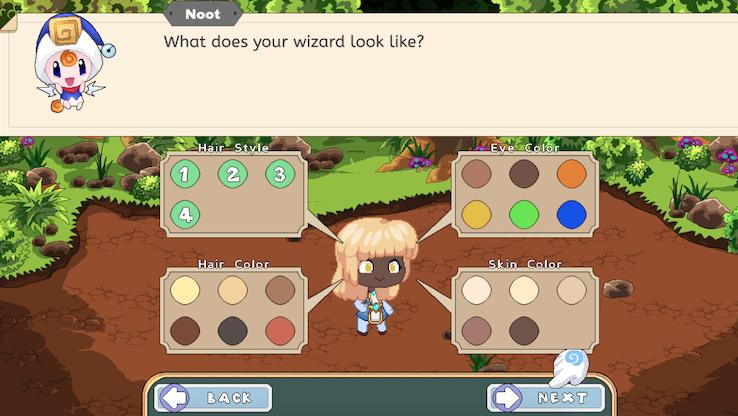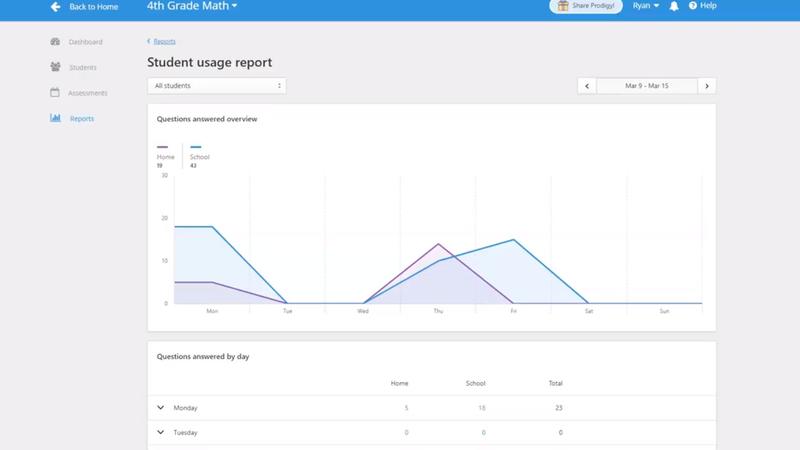Learning Ritual: an Easy Process Andrew K. Skidmore

Is it possible to turn study time into fun time and still learn? Absolutely! When you want to get kids excited about learning — especially when it's a subject they might have some hangups about — making the learning process engaging is an ideal way to help them connect with and understand the material on a deeper level. One of the more effective ways to do that is to use games to teach them essential concepts.
Millions of students across North America have turned to the Prodigy Math Game to improve their skills and comprehension of mathematics. The game works on computers and mobile devices and on most internet browsers, so it's easy for kids to use anywhere. The co-founders of Prodigy set out to create an online system that played like a video game while helping students learn math — and they succeeded. Learn some key ways Prodigy Math Game is beneficial for students.
It's Accessible and Easy to Use
Prodigy Math Game is web-based, meaning students don't have to download an app in order to start playing. All they need to do is visit the game's main website and create an account to access the over 1,200 essential math skills and the Common Core curriculum Prodigy aims to teach kids in first through eighth grades. Having an account saves a student's progress so they can continue with their quest right where they left off last.

Teachers can set up free accounts for their students — but if a school district, school or teacher doesn't use Prodigy Math Games as part of the curriculum, parents can also set up free accounts for their children. Once everything with a new account is set up, students can log in from anywhere at any time using their usernames and passwords. It's not necessary to provide an email address or any personal information to sign up unless parents want to purchase in-game extras.
The games are always completely free, although users can choose to pay for premium features, such as extra hairstyle options for their characters and access to more pets. The upgrades are completely optional and not necessary to enjoy the full educational benefits of the program.
Prodigy identifies the gaps in a student's learning without putting them through the stress of standardized testing. The system incorporates a diagnostic test that places kids at the correct grade level commensurate with their skills. This automatically scales the game to each student's current level and then helps them make their way through the more difficult concepts. Students can progress at their own pace yet gradually get better at doing fast math in school.

Because the game spans eight different grade levels, this allows kids to return or advance to different skill sets if they need refreshing or they've progressed in their understanding. This freedom to progress can help kids get familiar with new skills and material before they formally learn it in a classroom setting, this can increase their chances of success and give them more opportunities to solidify and apply what they learn.
Customization Makes Gameplay More Engaging
Prodigy Math Games makes it more enticing and enjoyable for young learners to get involved in their math journey. When they set up their computers or devices to play Prodigy, students get to choose an avatar, much like they would in other adventure-style games. They also get to select a pet to train and care for. This helps the game feel more personal to them, and the bright visuals also help make the material more captivating.

Once kids are signed into the game with their characters, they choose a quest and access the large interactive map. Each time they visit the game, they can choose where on the map they want to play — the mountain, the river, the forest or another spot. Each area on the map takes them on an entirely different learning adventure. They need to solve math problems along the way to move ahead to the next stage of each quest, and they can also defeat monsters by solving math problems. This gives kids a clear objective and fosters independent learning as they work on their own to move through the levels.
It Fosters Skill Mastery
Unlike some math learning games that are more surface-level, Prodigy doesn't just implement digital flashcards disguised as a game. The games involve real adventures with real progression built into the design that requires students to demonstrate their understanding. That doesn't mean Prodigy Math Game doesn't do its job as a teaching tool, however. When kids need assistance with a concept, they can click on different terms in the challenges to view explanations about the equations and processes they'll need to use.

The adventure-style format makes kids want to continue learning, and they have to master the math embedded in the game to keep progressing. The constant practicing of math skills soon turns to math fluency and, finally, math mastery.
There's Real-Time Reporting for Teachers
Teachers who set up Prodigy Math Game accounts for their students have access to each student's Prodigy progress in real time. Various reports allow teachers to track which concepts students are mastering and which ones still need some work and extra practice, which makes it easier to tailor lessons to specific math concepts.

The assessment feature allows teachers to customize the content of the game so students can work on strengthening the skills they need to bridge any learning gaps. It's easier for students to play without realizing they're working hard at completing real coursework, and the game is effective at supplementing in-class instruction by reinforcing and re-teaching material kids are learning during lecture-style teaching.
Source: https://www.questionsanswered.net/tech/how-prodigy-math-games-can-help-k-12-kids-learn?utm_content=params%3Ao%3D740012%26ad%3DdirN%26qo%3DserpIndex&ueid=6b9dcd36-ca21-4ebd-bc83-e08c205b50b2
0 Response to "Learning Ritual: an Easy Process Andrew K. Skidmore"
Postar um comentário